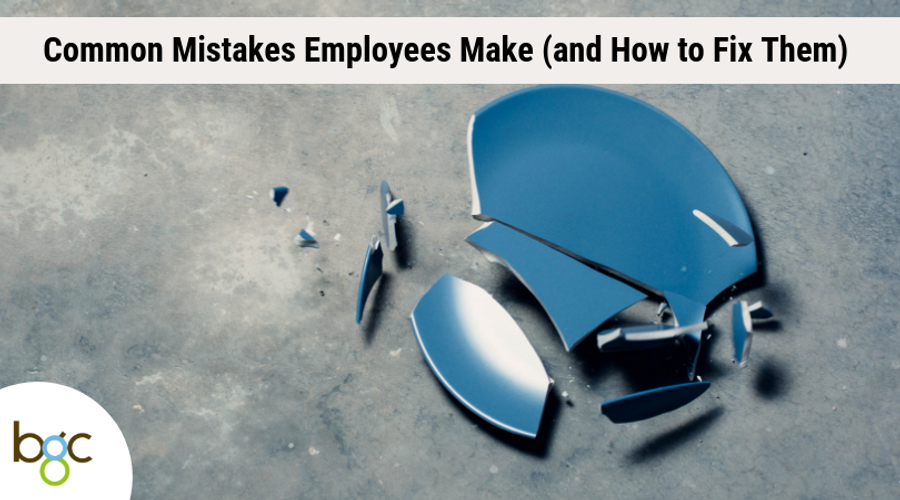It’s hard to model yourself after the perfect employee; especially since the perfect employee does not exist. Even employees working in part-time and temporary jobs struggle to be perfect all the time. However, there are steps that you can take to get as close as you can to be a good employee in Singapore.
Frequent mistakes might tarnish your name, leaving other colleagues to label you as, “annoying” or the “late-comer”. Mistakes might also cost you either your next promotion or a solid reference for future job positions.
1. Turning Up Late for Work

It is never a good impression when you turn up late for your job. Employers want you to make full use of every hour and minute of the day so that you can maximize your job performance.
Turning up late for work not only puts you at risk of losing your job but it also:
It’s impolite. You’re basically telling your employee that your personal time is more valuable than your manager’s time.
You won’t perform at your best. When you’re late, you’re going to be distracted. Unless you’re a sociopath, you’ll probably feel guilty every time you turn up late to a job. When you feel guilty, you’ll spend most of the workday distracted and wondering what people might think
You’re wasting everyone’s time. In a healthy working environment, people will depend on one another to get the job done. If you come late, you’re distracting your colleagues from completing their own work and KPI.
You’re setting yourself up for micromanagement. Managers and supervisors don’t like to micro-manage people either but if you leave them no choice, they will resort to micromanagement.
Keep in mind that you should inform your employer if there’s an emergency that you’re dealing with.
2. Being Uninterested in Learning

Contrary to popular belief, learning never stops just because you’re out of school. In fact, you’ll be learning something new almost on the daily, to contribute to a better you. Remember, there are countless better versions of yourself, waiting to be realized and expressed.
Are you finding it hard to improve your performance at work? Here are some tips for you:
Set milestones. Sometimes it’s hard to tackle the huge task you’re forced to work on. By breaking it down to smaller, less daunting tasks, you’ll find it easier to power through the week.
Avoid distractions. Do you find it hard to stop yourself from long, drawn out conversations with your colleagues? Or skipping from one video to another on YouTube because you’re bored of the tasks set out for the day? Well, one way to quell this is by avoiding distractions at all cost!
Read Seek’s article on ways you can avoid distractions at work.Stop multitasking. Sometimes, multitasking leads to burnout, which in turn leads to the abandonment of chores. Set yourself daily tasks that you can conquer, and reward yourself for completing the different tasks.
Accept your weaknesses. Nobody’s perfect. We’re all flawed one way or another. By accepting your weaknesses, you’re able to spot areas for easy improvement. So remember, the next time your supervisor or manager points out a weakness of yours, ask them for advice on how you can change - instead of going defensive.
3. Expecting Your Boss to Guide You

Sure your boss (and to some extent your colleagues) may help you out during your early work days. But there is an expiration date to the amount of help they’ll extend, and you cannot expect them to help you out after you’ve been at the job for more than 2 months. The best way to avoid this is to absorb as much information as you can during your training period.
Here’s how you can absorb as much information as possible during your on-the-job training:
Learn according to your learning style. Everyone has their own learning style. Identify the style that suits you the most and let your manager/supervisor or mentor know.
Learn from others. Notice one of your colleagues tackling a task well? Observe them and how they function. But don’t stop there! Befriend them and ask them for their tips and tricks. They’ll be happy to help you out.
Be Proactive. Do before you’re told and you will survive. Being proactive means that you’re taking the initiative to find out the correct way of doing things, instead of being told what to do.
Proactive people have often valued employees as they usually understand that role enough to:
A) Predict future changes
B) Participate; proactive employees do not stand idle and observe. They choose to get involved.
C) Perform timely and effective actions.
4. Irresponsible with Personal Work Tasks

Sometimes, we prioritize our daily tasks at work to the point where we forget about completing our own personal work responsibilities (i.e. timesheet recording). A common personal responsibility that we’ve seen people neglect is completing and submitting their timesheets on time. Or fill it in, in legible and neat handwriting.
*Pro-Tip: For employees hired through BGC Group Singapore, doing this not only wastes your time, but you’re also postponing your monthly salary.
Seemingly simple mistakes might also cost you, your next job reference the next time you’re applying through a recruitment agency in Singapore. A grave mistake that might cost you easy access to jobs (i.e. full-time, part-time, or temp). These mistakes, however, are not final and can often be avoided by simply being more proactive and aware of what you do in the workplace.
Despite this, you should always remember that employers do not have the right to impose outrageous forms of punishments on you. Keep yourself aware of your employee rights with our latest article, “7 Rights Every Singaporean Employee Should Know By Heart”.
